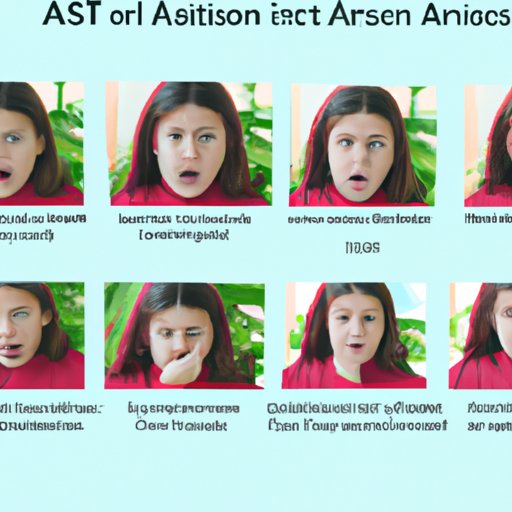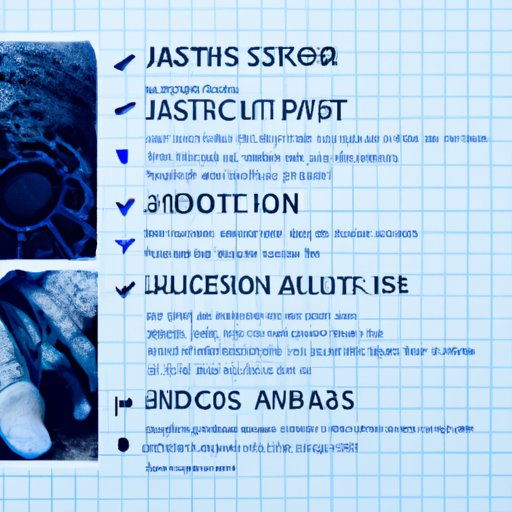Introduction
Androgen Insensitivity Syndrome (AIS) is a genetic disorder that affects physical sexual development in people with XY chromosomes. AIS is caused by mutations in the genes responsible for responding to male hormones, resulting in individuals who are genetically male but have female or ambiguous external genitalia. This disorder can range from mild to severe, depending on the amount of androgen receptors present in the body. Although this condition is rare, it is important to understand the different aspects of AIS Syndrome in order to provide adequate care and support for those living with it.
Purpose of Article
This article will explore the definition, causes, symptoms, diagnosis, treatment options, challenges, resources, and impact of AIS Syndrome. By understanding the various components of AIS Syndrome, we can gain a better appreciation for how this condition affects those living with it and their families.

Causes and Symptoms of AIS Syndrome
What Causes AIS Syndrome?
AIS Syndrome is caused by mutations in the androgen receptor gene, which is found on the X chromosome. These mutations can range from mild to severe, depending on the number of androgen receptors present in the body. The majority of cases are caused by inherited mutations, although spontaneous mutations may occur as well.
Common Symptoms of AIS Syndrome
The primary symptom of AIS Syndrome is an inability to respond to male hormones. This can lead to a variety of physical and psychological effects, including:
- Underdeveloped or absent external genitalia
- Developmental delays
- Delayed puberty
- Infertility
- Gynecomastia (abnormal breast development in males)
- Mental health issues, such as depression and anxiety

Diagnosis and Treatment Options for AIS Syndrome
How is AIS Syndrome Diagnosed?
AIS Syndrome is typically diagnosed through a combination of physical exams, blood tests, and genetic testing. Physical exams may reveal underdeveloped or absent external genitalia, while blood tests can help determine hormone levels. Genetic testing can confirm the presence of mutations in the androgen receptor gene.
Treatment Options for AIS Syndrome
The goal of treatment for AIS Syndrome is to manage symptoms and improve quality of life. Treatment typically involves a combination of hormone replacement therapy, gender-affirming surgery, and psychosocial counseling. Hormone replacement therapy can help reduce the effects of AIS Syndrome, while gender-affirming surgery can help individuals achieve a more gender-congruent appearance. Psychosocial counseling can help individuals cope with the social and emotional impacts of the condition.
Living With AIS Syndrome: Challenges and Resources
Common Challenges of Living With AIS Syndrome
Living with AIS Syndrome can be difficult, both physically and emotionally. Common challenges include difficulty coming to terms with gender identity, difficulty navigating relationships, and difficulty accessing healthcare and other resources. Additionally, individuals with AIS Syndrome may experience stigma, discrimination, and feelings of isolation.
Resources Available to Help People Living With AIS Syndrome
Fortunately, there are numerous resources available to help individuals living with AIS Syndrome. Organizations such as AIS Support Group International and InterACT Advocates for Intersex Youth provide support, education, and advocacy for those affected by AIS Syndrome. Additionally, there are online forums and social media groups dedicated to providing support for those living with AIS Syndrome.

Exploring the Impact of AIS Syndrome on Patients and Families
Physical and Emotional Impact of AIS Syndrome
The physical and emotional impact of AIS Syndrome can be profound. Many individuals experience physical discomfort due to the presence of abnormal hormones and underdeveloped or absent external genitalia. Additionally, individuals may experience psychological distress due to gender identity issues and difficulty navigating relationships. Research has shown that individuals with AIS Syndrome are at an increased risk of developing depression and anxiety. According to a recent study published in the journal Pediatrics, “Psychological distress is common among patients with AIS and should be carefully monitored and treated.”
Support Networks for Patients and Families
Fortunately, there are many support networks available for patients and families affected by AIS Syndrome. Organizations such as AIS Support Group International and InterACT Advocates for Intersex Youth provide education and advocacy for those affected by the condition. Additionally, there are numerous online forums and social media groups dedicated to providing support for those living with AIS Syndrome. These support networks can be invaluable in helping patients and families cope with the physical and emotional impacts of AIS Syndrome.
Conclusion
Summary of AIS Syndrome
AIS Syndrome is a rare genetic disorder that affects physical sexual development in people with XY chromosomes. It is caused by mutations in the androgen receptor gene, which can range from mild to severe. Common symptoms include underdeveloped or absent external genitalia, developmental delays, delayed puberty, infertility, gynecomastia, and mental health issues. Treatment typically involves a combination of hormone replacement therapy, gender-affirming surgery, and psychosocial counseling. Living with AIS Syndrome can be difficult, both physically and emotionally, but there are numerous resources available to help individuals and families cope with the condition.
Final Thoughts
AIS Syndrome is a complex condition that can have a significant impact on individuals and their families. It is important to understand the various aspects of AIS Syndrome in order to provide adequate care and support for those living with it. By increasing awareness and understanding of AIS Syndrome, we can create a more inclusive environment for those affected by the condition.
(Note: Is this article not meeting your expectations? Do you have knowledge or insights to share? Unlock new opportunities and expand your reach by joining our authors team. Click Registration to join us and share your expertise with our readers.)
